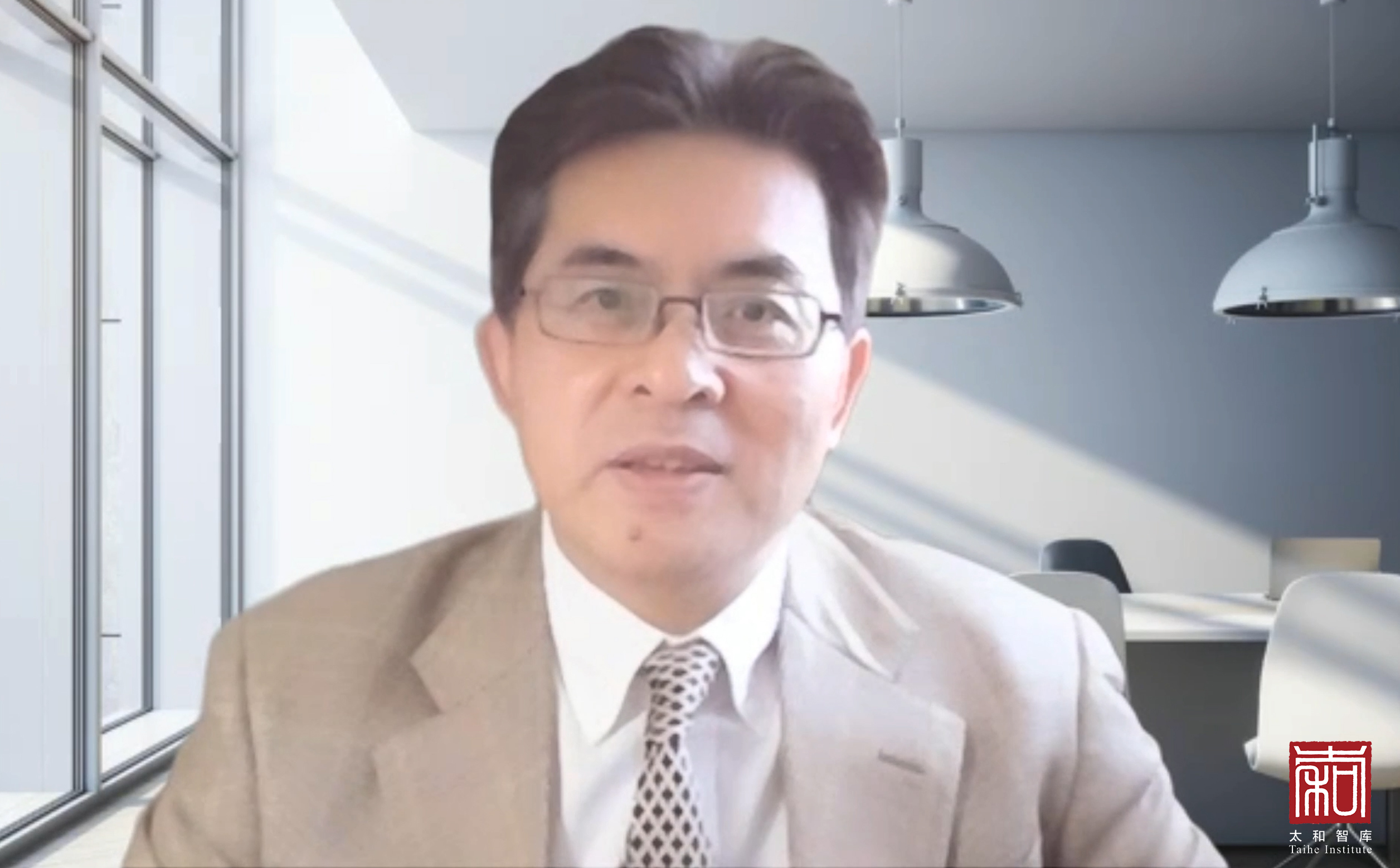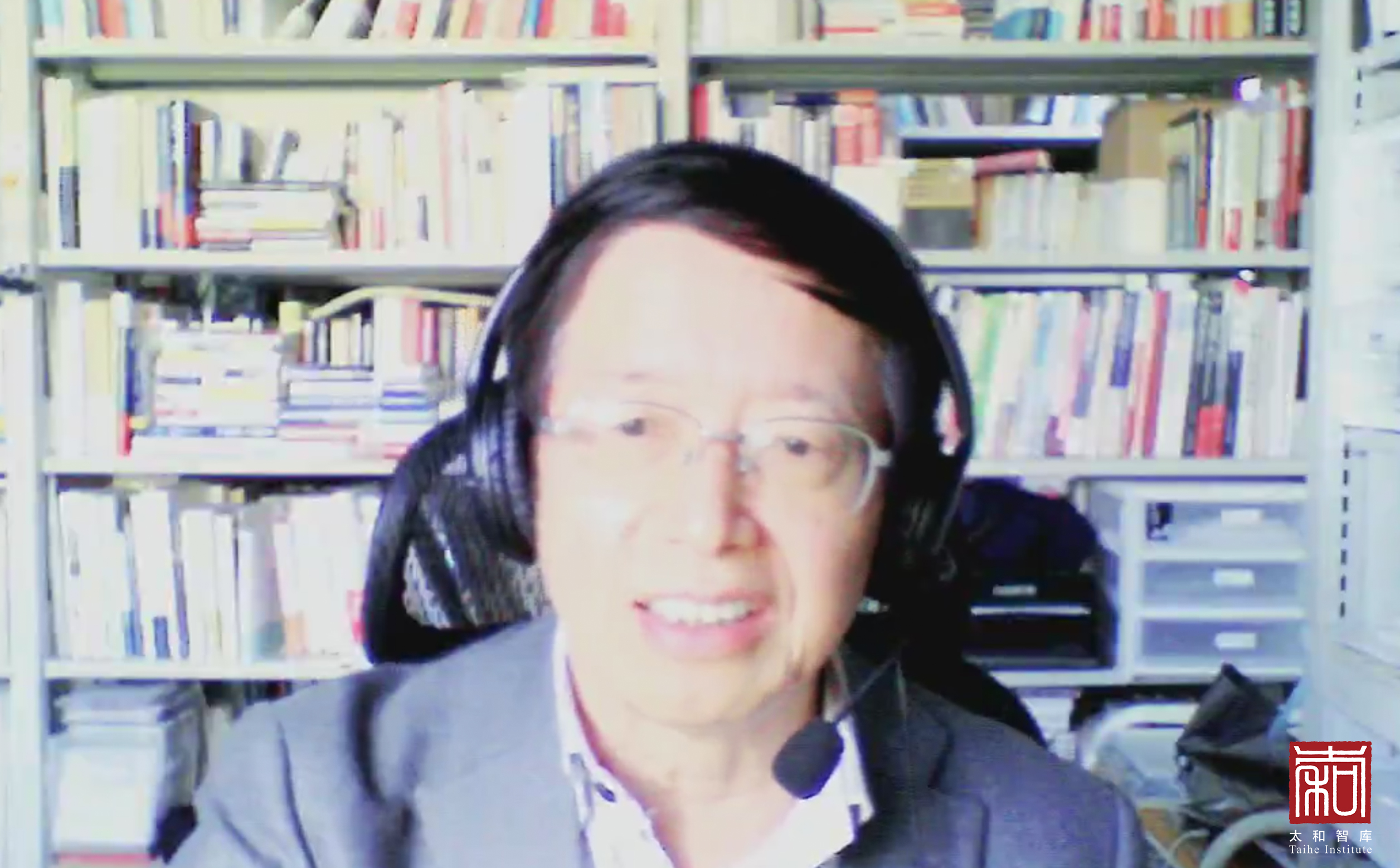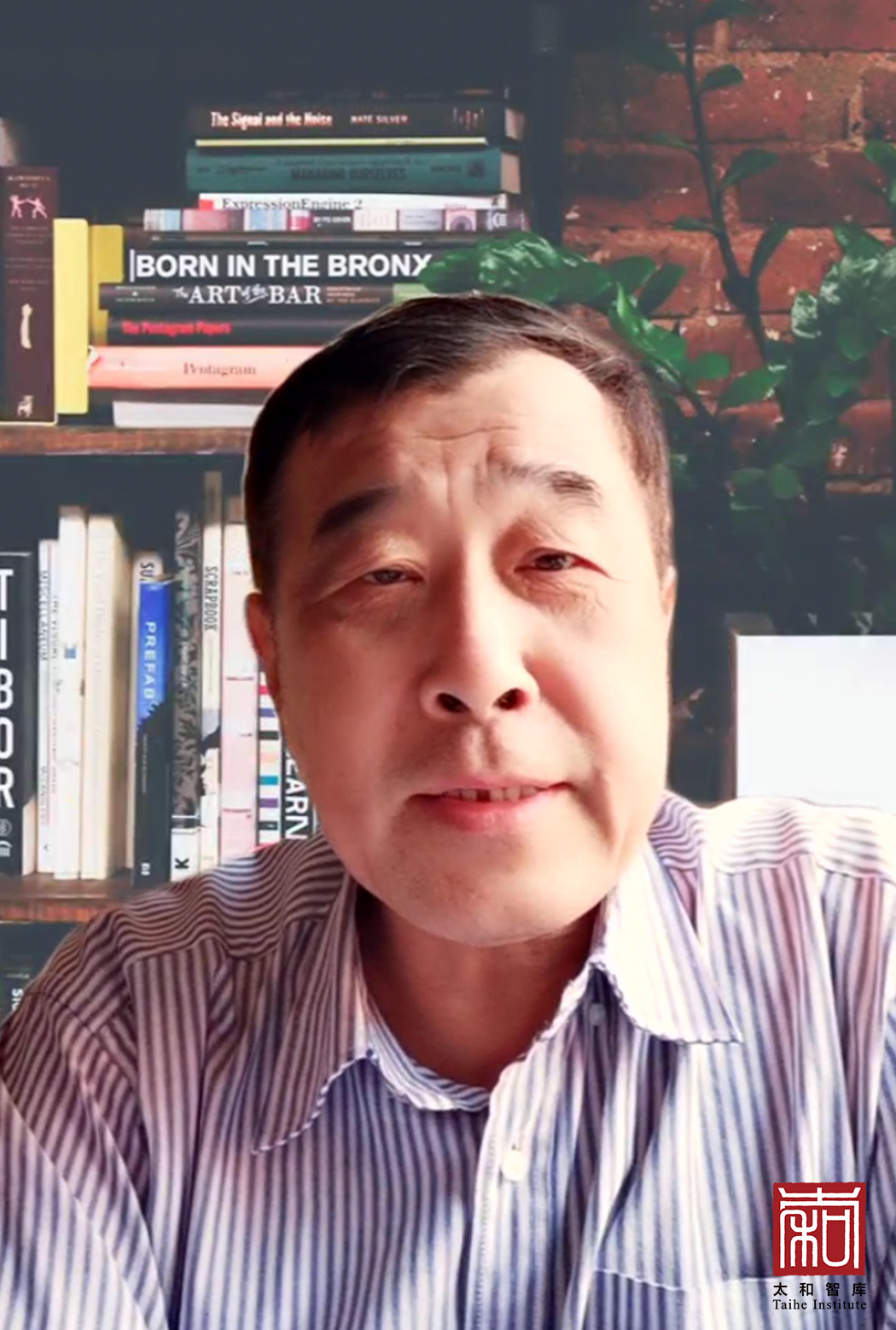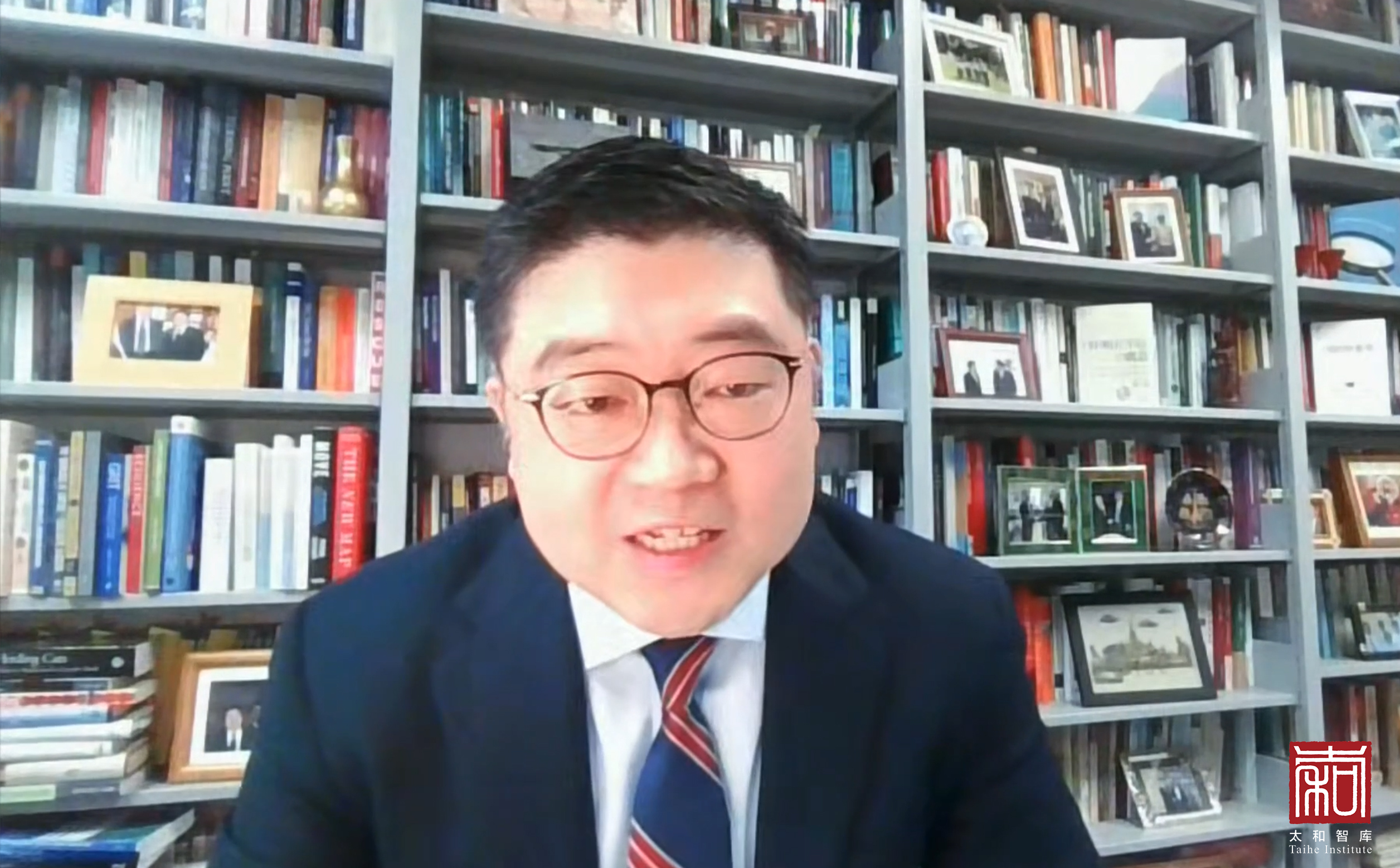In recent years, the Japanese government’s interference over the issue of Taiwan has caused considerable negative impacts on cross-Strait relations. On April 30th, 2022, Taihe Institute and the Japan Center for Cross-Strait Relations jointly hosted the seminar “The Impacts of the Japan Factor on Cross-Strait Relations” to gain greater understanding of the long-term impacts of Japan’s policy on the Taiwan issue. The main points of the symposium are summarized below.

Wu Hailong, President of the China Public Diplomacy Association, identified four factors which affect the development of cross-Strait relations and impede peaceful reunification. The first, and the most disruptive factor, stubborn “Taiwan independence” separatist forces led by the Democratic Progressive Party (DPP). Second, the resistance of the United States, which regards China as its main strategic competitor and thus uses Taiwan to suppress and contain China. Third, the increasingly destructive role of Japan in cross-Strait relations. By labelling the Taiwan issue as a “security threat,” Japan has joined forces with the U.S. against China and provided a pretext to expand its armaments, thus making the Taiwan issue a focal point of conflict in Sino-Japanese relations. Fourth, the disturbing spillover effect of the Russia-Ukraine conflict. Despite the fundamental differences and flawed comparisons between the Ukraine and Taiwan issues, the Russia-Ukraine conflict has given rise to the belief that the extreme application of pressure on Russia, by the U.S. and other Western countries, can deter and even scare China to resolve the Taiwan issue.

Professor Hong Shihong of Hannan University, and Director of the Japan Center for Cross-Strait Relations, pointed out that the U.S. and other Western countries are using Taiwan as a pawn to keep China in check, and that the Taiwan issue has been “internationalized.” Therefore, China needs to rethink the overall framework and theory of Taiwan-issue studies. To be exact, the original focus of Taiwan-issue studies was the institutional arrangement after reunification, but now the Taiwan issue has become part of an international political struggle. Accordingly, the Chinese mainland now needs to adjust its international narratives and related concepts on the Taiwan issue.

Cheng Yonghua, Executive Vice President of the China-Japan Friendship Association and former Chinese Ambassador to Japan, suggested that the healthy and stable long-term development of China-Japan relations is not only in the fundamental interests of both countries, but also conducive to peace, stability and prosperity both regionally and globally. The past few years have shown that as long as the four documents - the China-Japan Joint Statement of 1972, the China-Japan Treaty of Peace and Friendship of 1978, the China-Japan Joint Declaration of 1998, and a joint statement on advancing relations in 2008 - are effectively followed, Sino-Japanese relations can maintain a positive momentum and avoid detrimental twists and turns.
For Cheng, Japan’s recent “out of line” approach on the Taiwan issue has promoted a narrative over the Russia-Ukraine conflict that suggests “if something happens to Taiwan, Japan will be at stake as well.” However, this narrative exaggerates the confrontation between China and Japan, intensifies regional tensions, and advocates for Japanese involvement in the Taiwan Strait situation. As such, these remarks and associated activities have seriously damaged China-Japan political trust and relations, and cast a shadow on the 50th anniversary of the normalization of diplomatic relations between the two countries.
Cheng further noted that the Taiwan issue concerns the political foundation and basic trust in Sino-Japanese relations. Proper handling of the Taiwan issue is conducive to promoting the healthy development of Sino-Japanese relations. The more uncertain the international situation is, the more China and Japan need to inject certainty into their relations with a clearly defined outlook that echoes the changes of the times and the world. This should be the rightful trend of Sino-Japanese relations in the new era. To achieve this goal, all sectors of both the Chinese and Japanese communities need to work together in the following areas. First, hold firm to the original aspiration of normalization of diplomatic relations between the two countries and keep their respective commitments. Second, seek common grounds while preserving differences, and insist on mutual respect. Third, build a solid friendship for future generations. And fourth, deepen mutually beneficial cooperation and expand common interests.

For Ling Xingguang, a tenured professor at Fukui Prefectural University, the situation in the Taiwan Strait and China’s work with Japan face the following prospects. First, China takes a longer view in achieving peaceful reunification and attempts to win public opinion by contributing to the community with a shared future for mankind. This would eliminate Japan’s concern about the so-called “China threat” and be conducive to enhancing China’s international status. Second, China could formulate and enact a “Law for the Promotion of Peaceful Reunification Across the Taiwan Strait,” which would allow the government to adopt corresponding measures against the interference of external forces - on the one hand by presenting facts and reasoning, and on the other hand by issuing serious warnings against Japan’s China-focused military expansion and war preparations. Third, China could, if necessary, reunite Taiwan by force as a response to the recent escalation of provocations against China by the “Taiwan independence” forces and the anti-China forces in the U.S. and Japan. No matter which prospect China faces, it must strengthen its defence forces

Lv Xiaoqing, Executive Vice President of the Society of Sino-Japanese Relations History, said that recently Japan has been taking more provocative actions on the Taiwan issue, making it a major obstacle to the healthy development of Sino-Japanese relations. Fundamentally, this is because Japan, for its own selfish interests, is trying to use the Taiwan issue as a card to restrain China’s peaceful development path. In the future, Sino-Japanese relations are likely to face a “complex and volatile situation that is not optimistic.” In the face of unprecedented changes unseen in a century, and in order to achieve the great rejuvenation of the Chinese nation, China should maintain a high degree of strategic focus in its dealing with Japan on the Taiwan issue. Moreover, China should insist on developing good neighbour relations and increased friendship between the two countries to promote the peaceful development of East Asia and the shared community.

Professor Zhu Jianrong at Toyo Gakuen University, noted that Japan’s position on the Ukraine issue is linked to its intentions and considerations on the Taiwan issue. This reflects Japan’s sense of agitation and crisis on Taiwan and toward the rise of China. In contrast to the U.S., Japan is more reluctant to see the reunification of China, because it would further weaken its position and influence in the geopolitical landscape of East Asia. Japan hears echoes from the visit of former US president Nixon to China in 1972, causing it to worry that, once again, the U.S. will shift its position on Taiwan. In this view, China needs to weaken Japan’s willingness to act as a pawn of the U.S. by publicizing the China-US consensus on major issues. Additionally, China should highlight decreased US credibility due to its withdrawal from Afghanistan and its actions in the Ukraine crisis. On the occasion of the 50th anniversary of the normalization of diplomatic relations between China and Japan, China needs to emphasize that the normalization of Sino-Japanese relations is predicated upon Japan’s recognition of Taiwan as a part of China, and that Japan’s interference in the Taiwan issue is tantamount to eroding the foundations of Sino-Japanese relations.

Li Yihu, Director of the Taiwan Research Institute of Peking University, emphasised that the mainland’s own development is the key to solving the Taiwan issue. As such, the future economic development of the mainland involves not only the growth of GDP, but also the expansion of the breadth and depth of national strength. The key to national strength enhancement is the strengthening of science and technology, military, finance and culture. If the mainland can accomplish the goal of “basic modernization” ahead of schedule, it will not only make an important change in the comparison of the comprehensive national power of China and the U.S., but also bring about a qualitative change in the development trend of cross-Strait relations, which means China would hold the dominant hand for the Taiwan issue.

Professor Zhang Yun of Niigata University pointed out that the US “Indo-Pacific Strategy” emphasizes that it will not fight alone, but form an “integrated deterrence” with its allies. In the case of Taiwan, the U.S. shift away from its original strategy of “strategic ambiguity” has led US allies, including Japan, into a state of “strategic confusion.” On the one hand, the U.S. reaffirms the “one-China policy” in its “Indo-Pacific Strategy,” but on the other hand, it wants to develop “integrated deterrence” and work with its allies and partners to “maintain peace in the Taiwan Strait.” In fact, the lack of US strategic clarity over both the extent to which it will tie the Taiwan issue with its “multilateral alliance in Asia” and the consequences of such a move, are inherently dangerous for cross-Strait Relations.

Zhu Songling, Director of the Institute of Cross-Strait Relations at Beijing Union University, noted that since the outbreak of the Russia-Ukraine conflict, the U.S. and other Western countries have included the Taiwan issue in their propaganda system, making it the second most popular topic after the Ukraine crisis. The obvious purpose is to create legitimacy and legality for the Tsai Ing-wen administration’s refusal to unify. With the support and connivance of the U.S. and other Western countries, the DPP authorities are now learning new public opinion warfare tactics from Western responses to the Ukraine crisis. By comparing the Ukraine issue with the Taiwan issue, they are establishing a mood of confrontation against the mainland and strengthening the sense of “Taiwan independence” on the island. For this reason, China must adopt an inclusive approach to ensure that the people on both sides of the Strait share the objective of national reunification.

For Wang Jian, Senior Fellow of Taihe Institute, the U.S. and Japan are explicitly challenging the “one-China Policy” and creating the “one China, one Taiwan” situation. Their actions have increased complexity leading to escalating tensions in the Taiwan Strait and a deterioration in cross-Strait relations. The U.S. and Japan pose the greatest external resistance to peaceful reunification across the Taiwan Strait. To contain China, the U.S. and Japan have used Taiwan as a pawn and emboldened the Taiwan DPP authorities to further collude with them. Despite the paramount challenges and unprecedented difficulties on the path to peaceful reunification, China’s general policy toward Taiwan remains clear and consistent – “promoting peaceful development in and reunification across the Taiwan Strait.” It must be emphasized that peaceful reunification remains the best way to solve the Taiwan issue, and is the common desire of the Chinese people across the Strait. However, this does not mean that peaceful reunification is the only way to solve the Taiwan issue.
—————————————————————